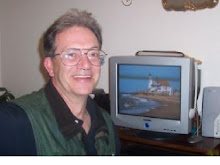The Chávez model hits Nicaragua.
If Honduras manages to preserve its democracy despite U.S. pressure to abandon it, the tiny Central American country may wind up thanking Nicaragua's Danny Ortega, of all people.
Last week, President Ortega inadvertently provided the best defense yet of the Honduran decision this summer to remove Manuel Zelaya from the presidency. Nicaragua has a one-term limit for presidents, and Mr. Ortega's term expires in 2011. However, the Nicaraguan doesn't want to leave, and so he asked the Sandinista-controlled Supreme Court to overturn the constitutional ban on his re-election.
Last week the court's constitutional panel obliged him. The Nicaraguan press reported that the vote was held before three opposition judges could reach the chamber in time for the session. Three alternative judges, all Sandinistas, took their place and the court gave Mr. Ortega the green light. Mr. Ortega has decreed that the ruling cannot be appealed.
This is classic strong-man stuff on Hugo Chávez's Venezuela model. Mr. Ortega's approval rating is in the low-30% range and he'd have a hard time winning a fair election against a united opposition. But he controls the nation's electoral council, and in the 2008 municipal races—the most important elected checks on the president—the council refused to provide a transparent accounting of the vote tally. It also blocked international and local observers, and the vote was marred by claims of widespread fraud. The international community watched all this but did nothing. And now Mr. Ortega is taking the next chavista step toward indefinite rule.
Hondurans deposed Mr. Zelaya because he was showing similar designs on changing their constitution to be able to run again and stay in power. Hondurans have to live in Mr. Ortega's neighborhood, and their action against Mr. Zelaya may well have saved them from Nicaragua's fate.





No comments:
Post a Comment